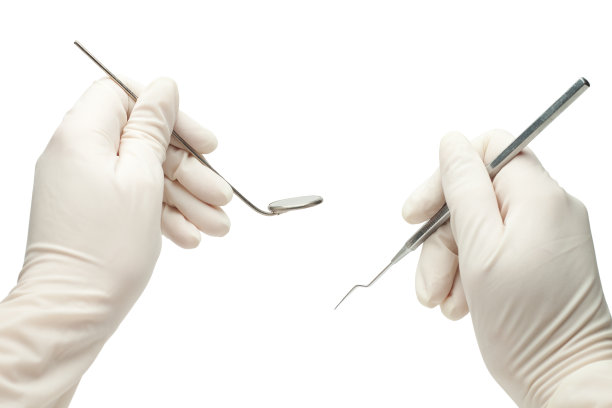The Painful Journey of Extracting a Tooth and Its Impact on Oral Health and Wellbeing
Summary: The extraction of a tooth can be an emotionally and physically draining experience, significantly impacting both oral health and overall well-being. This article explores the multifaceted journey of tooth extraction, delving into the reasons necessitating the procedure, the physical pain and emotional toll it takes, postoperative care, and the broader implications on oral health. By gaining a comprehensive understanding of this painful journey, we can better appreciate the importance of maintaining oral health to avoid such dire interventions, emphasizing a proactive approach to dental care.
1. Reasons Leading to Tooth Extraction

Tooth extraction often becomes a necessary measure in various dental situations. Common reasons include severe decay, gum disease, and overcrowding of teeth. When a tooth is significantly damaged beyond repair, an extraction is often the only solution to prevent further complications, such as infection or cyst formation. The decision is typically made in consultation with a dentist, who assesses the severity of the damage and discusses potential alternatives.
Additionally, wisdom teeth removal is a routine extraction performed on many individuals. These molars can become impacted, causing pain, swelling, and alignment issues with existing teeth. The decision to remove wisdom teeth often stems from a preventative standpoint, aiming to avert future dental problems. Understanding these reasons can help patients cope with the thought of extraction, recognizing it as a necessary step towards maintaining long-term oral health.
Another reason for extraction might involve orthodontic treatments. In cases where teeth are misaligned or overcrowded, dentists may recommend removing certain teeth to create adequate space for correct alignment. This proactive approach highlights the importance of strategic tooth removal in achieving a healthier and more functional smile.
2. The Physical Pain of Extraction
The physical experience of tooth extraction can vary, but it is generally accompanied by anxiety and discomfort. Prior to the procedure, dentists administer anesthesia to numb the area, alleviating immediate pain. However, the anxiety leading up to the extraction can be overwhelming; patients often fear the unknown or recall previous painful experiences at the dentist.
Following the extraction, it is common to experience swelling and discomfort as the anesthesia wears off. Over-the-counter pain relievers or prescribed medication can assist in managing this pain, but the recovery process can be challenging. It is crucial for patients to adhere to aftercare instructions to minimize pain and promote healing effectively.
Individuals may also face challenges related to dietary restrictions during the initial recovery period. Soft foods are recommended immediately after extraction, and many find it difficult to adjust to a modified diet. This transition often adds to the overall discomfort, as the process goes hand in hand with the physical pain of healing and the situational discomfort of limited food choices.
3. Emotional Impact of Tooth Extraction
The emotional fallout from an extraction can be just as significant as the physical pain involved. Patients often experience a variety of feelings, including anxiety, sadness, or even depression regarding the loss of a tooth. For many, teeth hold intrinsic value tied to self-image and confidence; losing a tooth, especially when visible, can contribute to feelings of insecurity.
Moreover, the anticipation of the procedure itself can lead to heightened anxiety levels, leading some to avoid dental visits altogether. This avoidance can create a cycle of neglecting oral health, causing further complications and eventual emergency extractions. The emotional burden of tooth loss can persist long after the physical pain subsides, making it essential for caregivers to support patients through their recovery journey.
Developing coping mechanisms through mindfulness, counseling, or support groups can prove beneficial. Encouraging communication about fears and experiences can help patients process their emotions effectively. Recognizing the emotional aspects of this journey is crucial to providing comprehensive dental care.
4. Long-term Effects on Oral Health
The immediate and long-term effects of tooth extraction can significantly impact oral health. Following an extraction, the gap left by the missing tooth may lead to shifting of adjacent teeth, resulting in misalignment and bite issues. These changes can create further dental problems, necessitating more complex interventions in the future.
Furthermore, bone loss is a common concern post-extraction. The jawbone requires stimulation from teeth to maintain its density; when a tooth is removed, the area may gradually deteriorate. This loss can lead to complications not just in aesthetics but also in overall oral health, making it vital to explore restorative options like dental implants or bridges after healing.
Orthodontics or prosthodontics may also be needed in the future to address the fallout from extraction. Therefore, aftercare, coupled with regular dental check-ups, becomes imperative in safeguarding against future complications. This multifaceted approach underscores the importance of diligent oral care before and after tooth extraction to mitigate further health issues.
Summary:
The painful journey of extracting a tooth involves understanding its necessity, the physical and emotional toll on the individual, and the long-term implications for oral health. Each aspect intricately interconnects, revealing how vital it is to prioritize preventive oral healthcare to avoid the need for extractions.
By addressing dental issues promptly and maintaining communication with dental professionals, individuals can navigate their oral health journey more smoothly and confidently. Taking care of your smile can save you from a painful journey later!
This article is compiled by Vickong Dental and the content is for reference only



